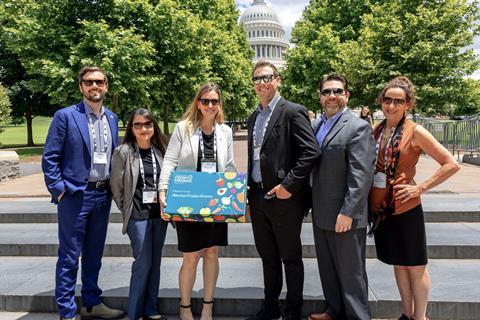Strengthening agriculture, expanding nutrition and advancing trade are the key pillars of the IFPA’s policy

As policymakers and industry leaders prepare to gather for The Washington Conference in Washington DC, the International Fresh Produce Association (IFPA) has said it is setting the stage for critical policy discussions impacting the fresh produce and floral industries.
With a focus on labour, food safety, nutrition, trade, and the Farm Bill, IFPA said it remained at the forefront of advocacy efforts to strengthen the supply chain and ensure consumers have access to safe, affordable, and high-quality fresh produce and floral products.
“As the fresh produce industry faces evolving challenges, from trade barriers to food safety regulations and nutrition policy, IFPA is committed to being the leading voice advocating for fair, effective, and science-based solutions,” said Rebeckah Adcock, IFPA’s vice-president of government relations.
“By working with policymakers, we can ensure that fresh produce remains a critical component of public health and economic prosperity.
”The Washington Conference provides a unique opportunity to directly engage with policymakers shaping the future of agriculture,” she outlined.
”Growers, retailers, distributors, and industry advocates will use their collective voice to secure policies that support a resilient fresh produce and floral supply chain.”
The agenda will cover several key areas, IFPA noted, including addressing critical labour shortages; expanding access to fresh produce for the public; modernising the farm bill; ensuring fair and open markets through trade and supply chain resilience; and adopting a science-based approach to food safety.
”As policymakers shape the future of agriculture, IFPA stands as a leading voice for the fresh produce industry,” the association stated.
”By advocating for a strong workforce, modernised agricultural policies, enhanced nutrition programmes, and a fair-trade environment, IFPA is committed to protecting the industry’s long-term success and ensuring that fresh produce remains accessible to all consumers.”



